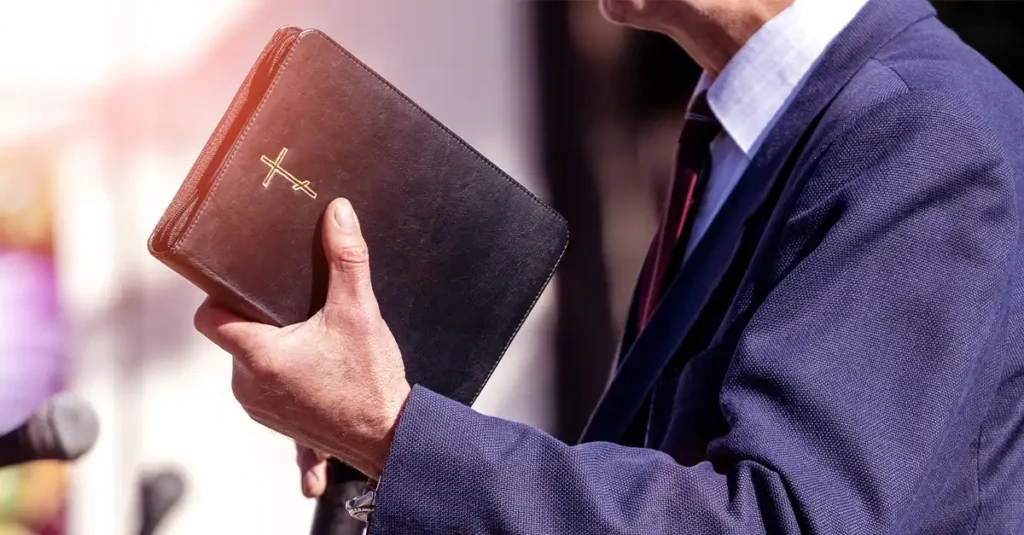In a move that has stirred nationwide outrage, the Niger State Government has rolled out a law requiring all religious preachers — Christian and Muslim — to submit their sermons for approval and obtain government licenses before preaching.
Officials say it’s to curb messages that are “anti-government” or that may incite unrest.
But legal analysts, pastors, and imams across the country are asking a fundamental question: Is this even constitutional?
The truth? No. It isn’t.
And here’s why.
Section 38 Of The Nigerian Constitution — The Pillar Of Religious Freedom
Let’s start where all real authority begins: the 1999 Constitution of the Federal Republic of Nigeria (as amended).
Section 38 (1) states: “Every person shall be entitled to freedom of thought, conscience and religion, including freedom to change his religion or belief, and freedom (either alone or in community with others, and in public or in private) to manifest and propagate his religion or belief in worship, teaching, practice and observance.”
Let that sink in.
The Constitution:
* Gives every Nigerian the right to manifest and propagate their religion
* Allows them to do so in public or private
* Places no pre-conditions or approval requirements from any state actor
So when Niger State says, “Submit your sermon for vetting,” they are effectively saying: “This right isn’t automatic. You need our permission.”
That is a direct violation of Section 38.
Section 39 — The Right To Speak Freely Includes The Right To Preach
Even if the state tries to argue this is about “security” or “order,” the Constitution speaks again:
Section 39 (1): “Every person shall be entitled to freedom of expression, including freedom to hold opinions and to receive and impart ideas and information without interference.”
A sermon is more than religious speech, it is expression.
And expression, too, is constitutionally protected, especially when it’s non-violent and in line with doctrinal belief.
So if a preacher wants to speak against corruption, injustice, or immorality — that’s not “incitement.”
That’s constitutionally protected free expression.
But What About Public Safety Or Extremism?
Yes, every right has limits.
There are sections of the law — including Section 45 — that allow reasonable limitations of rights in the interest of public safety, order, or morality.
But here’s the real deal: Such limitations must be “reasonably justifiable in a democratic society.”
That means:
* Clear justification (not vague terms like “anti-government”)
* Targeted enforcement, not blanket censorship
* No discrimination against specific religions, sects, or preachers
* Due process — not bureaucratic panels with unchecked powers
Niger State’s law fails these tests.
It’s too broad. Too vague. Too easy to abuse.
And most dangerously: it presumes guilt before speech is even made.
Historical Warning: When Preaching Needs Permission, Tyranny Isn’t Far
Throughout history, some of the world’s most oppressive regimes — from Nazi Germany to Communist China — have tried to regulate religious speech in the name of “order.”
You May Like: Akpabio, Akume Urge Nigerians to Stay Hopeful Despite Economic Hardship
In each case:
* The pulpit became politicised
* The Church became silenced or state-controlled
* The people lost their voice
Is this the path Niger State is paving?
If we accept that preaching now requires a license, what’s next?
* A registry of “approved” doctrines?
* Government-written sermons?
* Jail time for preaching “without approval”?
What Must Be Done?
1. Challenge the law in court
Religious groups (like CAN, PFN, JNI, etc.) and civil rights bodies must challenge this law in the Federal High Court as unconstitutional.
2. Expose the illegality
Leaders must educate their members that this law is not backed by the supreme law of the land — and no governor has the power to override the Constitution.
3. Refuse to comply with unconstitutional demands
Peacefully — but firmly — refuse any demands that violate your protected rights. Let any enforcement be met with legal resistance, not silence.
The Constitution Is Clear. The Church Must Be Loud
What Niger State is attempting is not governance, it’s spiritual gatekeeping by the state.
And the Constitution, Nigeria’s supreme legal document, is not vague about this: no government has the right to license or censor the gospel.
Render unto Caesar what is Caesar’s, yes, but never render your pulpit, your prophecy, or your right to speak the truth.







